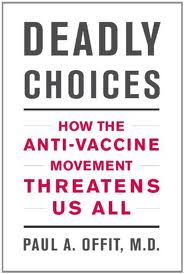February 4th, 2011 by Elaine Schattner, M.D. in Health Tips, Research
No Comments »

The current New Yorker unfolds an engaging story on childhood food allergies. As related by Dr. Jerome Groopman, there’s a shift in how some doctors think about how these conditions are best managed and, even better — might be prevented. The article feeds into recent discussion that medical science, and even dogma, too-often turns out to be incorrect.
Groopman interviews Dr. Hugh Sampson, director of the Jae Food Allergy Institute at Mount Sinai Medical Center in New York:
…“This increase in the incidence of food allergy is real,” Sampson said when we spoke recently. He cannot say what is causing the increase, but he now thinks the conventional approach to preventing food allergies is misconceived. For most of his career, he believed, like most allergists, that children are far less likely to become allergic to problematic foods if they are not exposed to them as infants. But now Sampson and other specialists believe that early exposure may actually help prevent food allergies.”
 I recommend the full read if you can get it: Groopman probes potential causes of discordant food allergy rates in children of different geographic regions. I learned a number of details on how some doctors in the U.S. use protein-breakdown methods to desensitize children to food allergies, how in Israel newly-speaking infants are said to ask eagerly for Bamba, a manufactured, peanut-containing snack (which, for the record, I don’t particularly endorse), and how in some cultures parents chew their young children’s food in a manner that might that might facilitate breakdown of complex proteins by enzymes in saliva.
I recommend the full read if you can get it: Groopman probes potential causes of discordant food allergy rates in children of different geographic regions. I learned a number of details on how some doctors in the U.S. use protein-breakdown methods to desensitize children to food allergies, how in Israel newly-speaking infants are said to ask eagerly for Bamba, a manufactured, peanut-containing snack (which, for the record, I don’t particularly endorse), and how in some cultures parents chew their young children’s food in a manner that might that might facilitate breakdown of complex proteins by enzymes in saliva.
All interesting. Of course it’s hard to know exactly what’s true in this, and the causes of allergies are likely to vary among children. There’s a randomized LEAP study (Learning Early About Peanut Allergy) in the U.K. that may provide some hard evidence on this, one way or another.
*This blog post was originally published at Medical Lessons*
February 3rd, 2011 by GarySchwitzer in Better Health Network, Opinion
No Comments »

 I have gushed praise for the Milwaukee Journal Sentinel for a long time. (Disclosure: I cut my teeth in journalism as a Journal Company employee way back in 1973. No ties since 1976.) As a mid-market newspaper facing all of the same hurdles as other newspapers, it consistently demonstrates tenacity and creativity in tackling vital healthcare issues in this country. The latest: A project called “Empty Cradles: Confronting Our Infant Mortality Crisis.”
I have gushed praise for the Milwaukee Journal Sentinel for a long time. (Disclosure: I cut my teeth in journalism as a Journal Company employee way back in 1973. No ties since 1976.) As a mid-market newspaper facing all of the same hurdles as other newspapers, it consistently demonstrates tenacity and creativity in tackling vital healthcare issues in this country. The latest: A project called “Empty Cradles: Confronting Our Infant Mortality Crisis.”
While there is a great health/medicine/science team in place at the Journal Sentinel, I believe that much of the credit goes to the top — to editor Marty Kaiser, who clearly understands that healthcare issues are among the most important his paper can report on in serving public needs. Kaiser writes:
“The Journal Sentinel today takes on an issue we have too long ignored — the death of children before their first birthday. Infant mortality is a crisis not just of public health, but of ethics and morality. The rate at which infants die in our city is unacceptable. In 2011 we will examine the problem and point to solutions.”
The project is off to a great start, taking a global picture and focusing it locally. Read more »
*This blog post was originally published at Gary Schwitzer's HealthNewsReview Blog*
January 31st, 2011 by Bryan Vartabedian, M.D. in Book Reviews, Opinion
No Comments »

 A friend suggested she was tired of hearing about vaccines. Her comment and our subsequent conversation seemed to reflect an important shift in parent sentiment: The conversation about vaccines is beginning to get somewhere.
A friend suggested she was tired of hearing about vaccines. Her comment and our subsequent conversation seemed to reflect an important shift in parent sentiment: The conversation about vaccines is beginning to get somewhere.
While much of this was born of the mainstream media’s newfound realization that the vaccine-autism connection was cooked, some of this is due to the tireless work of those like the Children’s Hospital of Philedelphia’s Dr. Paul Offit who get the story right.
As part of his passionate agenda to expose vaccine truths, he’s published “Deadly Choices: How the Anti-vaccine Movement Threatens Us All” (Basic Books, 2011). For those looking to understand the origins of anti-vaccine sentiment, read this book.
What struck me is the deep history behind the anti-vaccine movement. From Jenner’s smallpox fix to modern-day MMR struggles, Offit draws fascinating corollaries surrounding immunization that seem to defy the generations. Vaccine resistance was not born of Andrew Wakefield, but broader concerns rooted in religion, individual liberty, fear and propaganda. “Deadly Choices” puts the anti-vaccine movement in a historic sequence that reads like good suspense. I couldn’t put it down. Read more »
*This blog post was originally published at 33 Charts*
January 24th, 2011 by RyanDuBosar in News, Research
No Comments »

Eighteen percent of American believe that vaccines can cause autism, 30 percent remain unsure, and 52 percent of Americans don’t think vaccines can cause autism, according to public opinion polling done after research linking vaccines to the condition was reported as fraudulent.
While 69 percent of respondents said they had heard about an association between vaccination and autism, 47 percent knew that the original Lancet study had been retracted, and that recently the research is reported as being fraudulent.
The poll also found that 86 percent of parents who have doubts about the vaccine said that their children were fully vaccinated, compared to 98 percent of parents who believe vaccines are safe, and that 92 percent of children are fully vaccinated.
The poll was conducted after news reports were published that said Andrew Wakefield, the lead researcher of the research linking autism to the MMR vaccine, had used faked data.
More than 20 studies since Wakefield’s have disputed the association between vaccination and autism.
The online survey of 2,026 adults from Jan. 11 to 13 was done by Harris Interactive and HealthDay. (AP/Fox News, CNN, BMJ, WebMD)
*This blog post was originally published at ACP Internist*
January 21st, 2011 by Glenn Laffel, M.D., Ph.D. in Health Tips, News
No Comments »

 Last week, Nintendo became the latest consumer electronics maker to warn that kids shouldn’t use their three-dimensional image-based gaming devices because they may have a negative impact on development of the human visual system.
Last week, Nintendo became the latest consumer electronics maker to warn that kids shouldn’t use their three-dimensional image-based gaming devices because they may have a negative impact on development of the human visual system.
The warning came just a month before the company’s much anticipated release of the 3DS, which is just such a device that features a 3.5-inch screen which can create 3-D images without the need for special glasses. The 3DS is Nintendo’s most anticipated new product since it released the iconic Wii gaming device in 2006.
Sony’s PlayStation3, a similar product that requires glasses to create the 3-D effect, already carries a similar warning, as do 3-D TV sets made by Sony, Samsung, and Panasonic.
Nintendo’s warning applies to kids that are six years old or younger. The Japanese company advised parents to block access to the game machine’s 3-D mode for these kids, while adding that it was okay for them to use the 3DS in 2-D mode. Read more »
*This blog post was originally published at Pizaazz*
 I recommend the full read if you can get it: Groopman probes potential causes of discordant food allergy rates in children of different geographic regions. I learned a number of details on how some doctors in the U.S. use protein-breakdown methods to desensitize children to food allergies, how in Israel newly-speaking infants are said to ask eagerly for Bamba, a manufactured, peanut-containing snack (which, for the record, I don’t particularly endorse), and how in some cultures parents chew their young children’s food in a manner that might that might facilitate breakdown of complex proteins by enzymes in saliva.
I recommend the full read if you can get it: Groopman probes potential causes of discordant food allergy rates in children of different geographic regions. I learned a number of details on how some doctors in the U.S. use protein-breakdown methods to desensitize children to food allergies, how in Israel newly-speaking infants are said to ask eagerly for Bamba, a manufactured, peanut-containing snack (which, for the record, I don’t particularly endorse), and how in some cultures parents chew their young children’s food in a manner that might that might facilitate breakdown of complex proteins by enzymes in saliva.



 I have gushed praise for the Milwaukee Journal Sentinel for a long time. (Disclosure: I cut my teeth in journalism as a Journal Company employee way back in 1973. No ties since 1976.) As a mid-market newspaper facing all of the same hurdles as other newspapers, it consistently demonstrates tenacity and creativity in tackling vital healthcare issues in this country. The latest: A project called “
I have gushed praise for the Milwaukee Journal Sentinel for a long time. (Disclosure: I cut my teeth in journalism as a Journal Company employee way back in 1973. No ties since 1976.) As a mid-market newspaper facing all of the same hurdles as other newspapers, it consistently demonstrates tenacity and creativity in tackling vital healthcare issues in this country. The latest: A project called “












